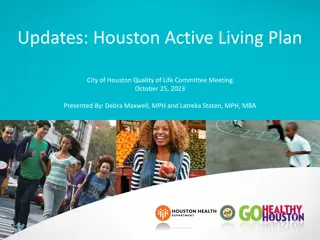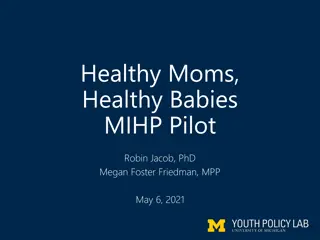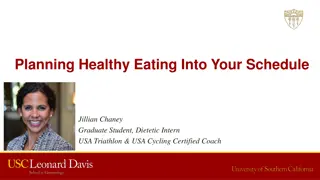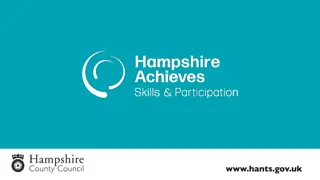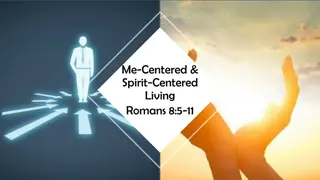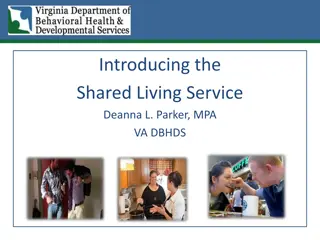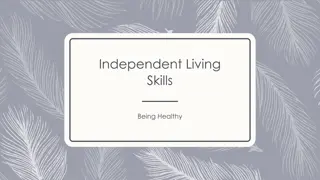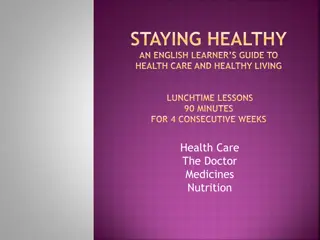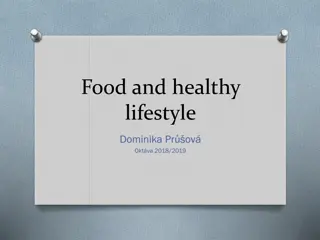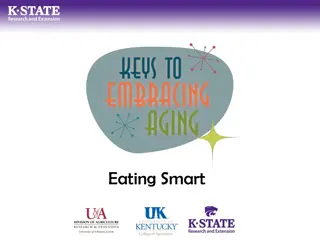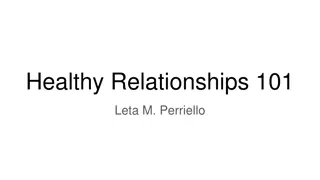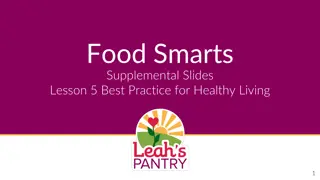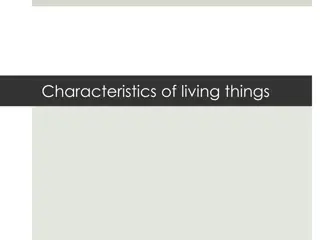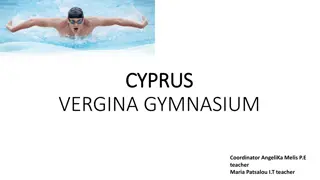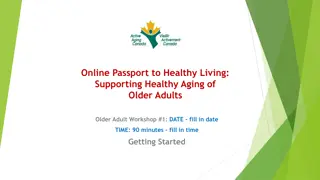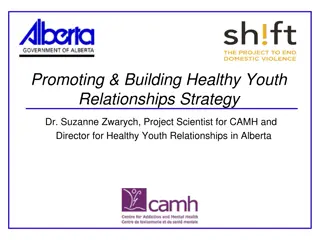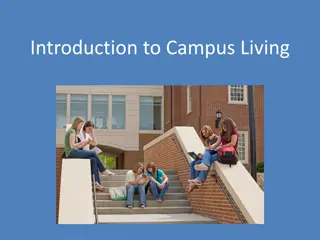Quick Discussion Topics for Healthy Living
Explore engaging discussion topics covering volunteering benefits, lifestyle balance, mentorship impact, and yoga advantages for holistic well-being. Promote community involvement, personal growth, and physical & mental health through interactive conversations. Encourage active participation to enhance overall longevity and quality of life.
Uploaded on Sep 18, 2024 | 0 Views
Download Presentation

Please find below an Image/Link to download the presentation.
The content on the website is provided AS IS for your information and personal use only. It may not be sold, licensed, or shared on other websites without obtaining consent from the author.If you encounter any issues during the download, it is possible that the publisher has removed the file from their server.
You are allowed to download the files provided on this website for personal or commercial use, subject to the condition that they are used lawfully. All files are the property of their respective owners.
The content on the website is provided AS IS for your information and personal use only. It may not be sold, licensed, or shared on other websites without obtaining consent from the author.
E N D
Presentation Transcript
10-Minute Topics 10-Minute topics are quick, easy- to-understand discussion topics to continue education and support healthy longevity. Please note that some of the topics are sensitive subject matter. Participation in the discussion should be voluntary to ensure the privacy and comfort of all participants.
Benefits of Volunteering 01 How can you encourage others to volunteer around the community? Volunteering is good for your health! A study recently found that individuals over 70 who volunteered approximately 100 hours a year (about two hours a week) had better self- reported health and functioning levels, experienced lower 02 levels of depression, and had greater longevity. What volunteer opportunities interest you?
The Lifestyle Profile 01 How do you ensure that you are reaching balance in your life? The Lifestyle Profile is a resident-driven online experience focused on whole-person wellbeing that connects you to personalized content designed to support you in enriching your lifestyle. 02 What are the benefits of taking the Lifestyle Profile? It is a dynamic approach based on your life currently focused on six areas of focus: physical, intellectual, social, peace & fulfillment, personal attributes and movement and motion. 03 How can we get the word out about the Lifestyle Profile so that people can take advantage of this resource?
Mentorship 01 How can you play a part in mentorship in our community or outside community? The International Council on Active Aging reported that people over 55 years who volunteered to assist school children with reading and classroom activities improved in brain function after four months. Additional results showed 02 tutoring had even more benefits. At the beginning, both How can you share what you have learned about mentorship with others? groups had little or no exercise. After three years, the women who tutored burned about twice as many calories as the non- volunteers. Anything that increases a level of activity for a long period of time is a huge plus, but the real news here is that this kind of volunteer work benefits children and the school system, as well as the volunteers, showing the potential benefits for what many are calling an "intergenerational social contract".
Yoga 01 Have you ever tried yoga? Yoga can have many health benefits. Beyond physical health, yoga can improve the mind, body and spirit of those who participate. Among the many benefits are improved sleep, increased strength, relief of arthritis, relief from chronic pain, 02 and improved mood. If so, what have you found to be the benefits? 03 What are some things you can do to encourage others to attend yoga classes?
Yoga is Beneficial for Mood 01 Do you participate in yoga? If so, does it help improve your mood? Yoga is practiced through many approaches, but all of them include a series of postures, breathing and mental focus to form a mind-body practice. In one study, people either walked or practiced yoga for one hour, three times a week. The 02 people who practiced yoga reported a bigger decrease in How might you encourage others to give yoga a try? anxiety and greater improvements in mood than the people who walked.
Yoga 01 Have you ever participated in a yoga class? Yoga is a multi-component meditative practice that includes physical, mental, and spiritual disciplines. Yoga includes breath control, simple meditation and the adoption of specific body postures. It is widely practiced for health and relaxation. 02 The benefits of yoga for older adults include increased What opportunities do we have to participate in yoga at our community? mindfulness, increased muscle/bone strength and improved balance. Yoga also enhances psychological wellbeing and has been proven to reduce depression and symptoms of anxiety, as well as improve general mood. 03 Do you think of yoga as more of a physical activity or a spiritual activity?
Tai Chi 01 Have you ever participated in a Tai Chi class? Tai Chi is a noncompetitive, self-paced system of gentle physical exercise and stretching. Each posture flows into the next without pause, ensuring that your body is in constant motion. When Tai chi is performed, three major components 02 are working together: movement, mediation, and deep Have you ever participated in a Tai Chi class? breathing. Tai chi offers many health and wellbeing benefits for older adults. These include increased mindfulness, increased energy levels, better balance and coordination and reduced anxiety/depression. Many people also participate in Tai Chi for 03 spiritual reasons. Do you think of Tai Chi as more of a physical activity or a spiritual activity?
Relaxation Exercise #1 01 What did you notice about your mood during the relaxation exercise? Relaxation benefits your health by lowering blood pressure, reducing muscle tension and pain, increasing blood flow to muscles, and managing stress. The good news is that techniques that help you relax can be done almost anywhere. 02 Start now with the exercises below. What are some ways you could practice relaxation techniques daily? Breathing exercise: Sit or stand comfortably and relax your muscles. Focus your thoughts on your breathing. Allow yourself to take even, unforced breaths. As you inhale through your nose, slowly count to five. Then, exhale through your mouth as you slowly count to five. Repeat several times.
Relaxation Exercise #2 01 What did you notice about your body and muscles during the relaxation exercise? Progressive Muscle Relaxation: Remember to progress slowly and breathe comfortably. Start by gently tensing your shoulder and neck muscles. Hold for a few seconds. Release the tensed muscles. Gently tense your arm muscles. Hold for a 02 few seconds. Release. Gently tense your abdomen and Challenge: practice this relaxation exercise on a regular basis and journal your thoughts. back muscles. Hold for a few seconds. Release. Gently tense your upper leg and glute muscles. Hold for a few seconds. Release. Gently tense your lower leg and foot muscles. Hold for a few seconds. Release and relax all your muscles.
Happiness as a Currency 01 What things in life bring you pleasure, meaning and satisfaction? Happiness is the ultimate currency for which all other assets or experiences are traded. You might work hard to make money, but you make money so you can buy things or experiences that bring happiness. Tal Ben-Shahar 02 What does happiness look like for you? Studies have found that things such as education, money, cars and other material possessions do not increase levels of happiness as most people would believe. Everyone has the potential in life to be happy, as happiness is not a trait that you are born with, but something that can be learned and practiced. Researchers studying levels of happiness in people found pleasurable activities, engagement in life, having close relationships with others, a sense of meaning, and accomplishing goals to correlate with high levels of happiness.
Nature 01 What sort of activities do you enjoy that connect you with nature? "Study nature, love nature, stay close to nature. It will never fail you." Frank Lloyd Wright Take a walk, climb a mountain, or simply sit quietly outside. Doing these things benefits both the mind and the body. Spending time in nature provides an opportunity for you to clear your mind and get active. Being connected with nature has been linked to improving one s ability to heal after surgery and reduce anxiety. It has also been shown to help reduce stress. 02 How do you feel when you are in nature? 03 What opportunities do you have to spend time in nature?
Happiness 01 Research has shown that happiness and emotional well-being How can you contribute to making a happier environment? improve with time. Older adults have greater control over their emotions, learn to avoid or limit stressful situations, and are less likely than younger adults to let negative comments or criticism bother them. Factors that help people feel happy 02 How can you take these factors that influence happiness and incorporate them into your life? include accepting and forgiving yourself, finding pleasure and meaning in the things you do, focusing on the positive rather than negative, simplifying your life, and expressing gratitude whenever possible! 03 How can you share what you have learned about happiness?
Meditation 01 How do you meditate? To meditate means to engage in reflection or contemplation. Meditation can be done in many ways. Benefits of meditation include improved attention and focus, better sleep, increased 02 energy levels, lowered blood pressure, pain management, and How can you make time during your day for relaxation, meditation or reflection? stress relief. These benefits are especially important for older adults as some of these topics become issues with aging. 03 How can you share what you have learned about meditation with others?
Resiliency 01 When have you demonstrated resiliency in your life? Resiliency is the ability to positively cope and bounce back after failures, setbacks, and other stressful events that happen in life. Examples of resiliency include the death of a family member or close friend, divorce or separation, job change, 02 accident or surgery, or another form of significant life change. What are some strong factors of resiliency that you already have? Factors that contribute to resiliency include a strong support network of friends and family, good self-esteem, the belief you can overcome barriers and challenges, good problem-solving abilities, and effective communication/social skills. The more 03 resources and strengths a person can draw from, the more How can you increase your resiliency reserve to cope with future challenges? resilient they will be when faced with a challenge. Additionally, factors of resiliency are not things people are born with, they are resources that can be acquired and learned by anyone.
Mindfulness 01 What did you notice while participating in the mindfulness exercise? Mindfulness is about being present in the moment bringing awareness without judgment. Practicing mindfulness has been linked to improvements in cognitive and immune system functions. Practice being mindful by trying the exercise below. 02 Mindfulness exercise: Sit comfortably and clear your mind of How could you incorporate mindfulness into your daily routine? unrelated thoughts. Become present in the moment by looking around you. Notice the colors and shapes of the images you see. Next, bring into your awareness the sounds around you. Just simply notice the sounds you hear. Take a deep breath and become aware of the smells around you. Become aware of your sense of feeling as you feel the air on your skin and the climate that surrounds you. Continue to breathe slowly while sitting with increased awareness of your surroundings.
Self-Care 01 What self-care activities do you currently engage in? The term self-care refers to the actions a person takes to improve or maintain their health. Some examples of self-care behavior include exercising, making healthy diet changes, getting medical information from the doctor, and making 02 positive lifestyle changes. Self-care behaviors can be In what additional ways can you engage in self-care activities? expanded to also include activities a person enjoys that benefit mental health and stress management. These kinds of self- care behaviors are unique to each individual person. Some examples include meditation, cooking, painting, journaling, and 03 practicing relaxation techniques. How can we encourage others to engage in self-care activities?
Positive Thinking 01 What tricks do you have to help you stay positive? When life gives you lemons, do you choose to make lemonade? Do you look at the world through rose-colored glasses? If so, your body will thank you. Positive thinking has many health benefits, including the increased ability to fight 02 colds, improved mood and physical wellbeing, and increased How can you encourage others to think positively? life span. Positive thinking also helps people deal with stress better. 03 What do you notice about other people who you know are positive thinkers?
Music 01 How is music part of your everyday life? Music is a very important part of most people s lives and is integrated into the fabric of daily life in almost every culture. Research has shown that music can be a tool that promotes brain activity, relaxation, social interaction and 02 reminiscing. It has also been shown to be beneficial for older How does music affect your mood? adults with memory issues. No matter your age, music can be used to create a positive and relaxing environment for almost any mood. 03 In what ways can you share what you have learned about music with others?
Spirituality 01 What spiritual activities are offered in our community? What do you think of when you hear the word spirituality? When someone hears the word spirituality they often think of religion. Religion is spiritual in nature, but spirituality is not religious in nature. Dr. Andrew Weil describes spirituality as 02 any activity that makes you feel more alive, connected to What activity makes you feel connected to others and nature, less isolated, and less resistant to change? others and to nature, less isolated, and more comfortable with change. One person may find an activity spiritual, while another person may not. Spiritual activities can be anything from childcare to singing, art, nature walks, and even 03 gardening. How can you encourage group to participate in spiritual activities?
Gratitude 01 What are some of the things that you are thankful for in your life? Gratitude is an emotion or attitude of being thankful toward someone that has given you something you value. People with an attitude of gratitude report an improvement in their overall quality of life and feel a sense of calmness and 02 peace. Research has shown that focusing on and appreciating How could you benefit personally from having an attitude of gratitude? the positive aspects of life is related to a generally higher level of mental wellbeing. Other benefits include better physical health, improved mental alertness, and a reduction in psychological disorders. People who express gratitude are also more likely to offer emotional support to others.







